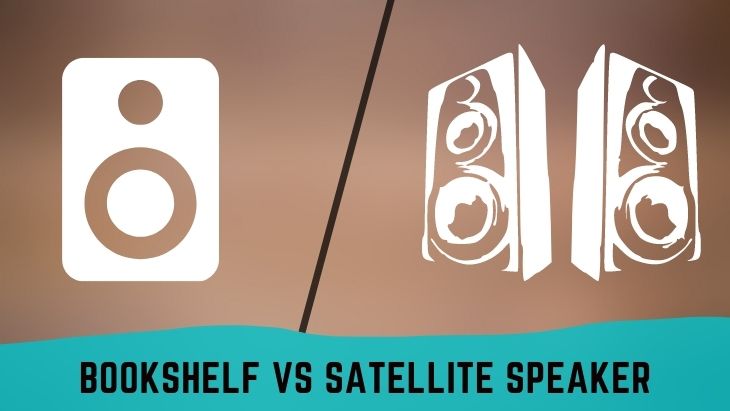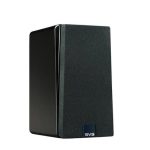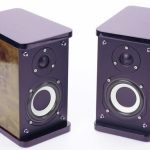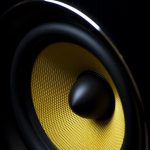If you are setting up a home theater, you may find it quite challenging to choose between bookshelf and satellite speakers. There is an unending debate on bookshelf vs satellite speakers. Which speakers should you buy between the two for your home theater? Well, knowing their differences can help you make an informed decision.
After all, you need the best listening experience in your home theater. Thus, you should pick the speakers that suit your home audio needs. In this article, we will discuss their differences, including the situations where you should use bookshelf speakers over satellite speakers and vice versa. Read on to find out.
Comparison Table
| Comparison Variable | Bookshelf Speakers | Satellite Speakers |
| Sound quality | They have several component speakers, thereby better sound quality | Average bass output but superior high frequencies |
| Durability | Decent build quality and long-lasting | Average build quality but long-lasting |
| Cost | Often more expensive than satellite speakers | Often more affordable than bookshelf speakers |
| Placement | On shelves, tables, or desks | Anywhere on the sides of a listener |
| Size | Larger | Smaller |
Bookshelf Speakers Explained
Bookshelf speakers, just like their name suggests, are speakers specially designed for placement on shelves or elevated surfaces such as desks and tables. They are not supposed to be placed on the floor. Their design allows for optimized sound output in small to medium-sized rooms. If your living area is medium or small, you can use bookshelf speakers effortlessly.
They are efficient on space, thanks to their compact design. Most of them are compatible with desktop computers, laptops, TVs, and smartphones. Also, you can find Bluetooth bookshelf speakers for wireless connectivity. Additionally, some models allow for HDMI connectivity for superior audio quality.
When choosing between wired vs wireless bookshelf speakers, consider their pros and cons. For instance, Bluetooth bookshelf speakers reduce clutter as there is no speaker cabling included. However, there may be limitations on the signal strength. On the other hand, wired bookshelf speakers increase clutter due to speaker wire but there are no issues with the signal strength.
Satellite Speakers Explained
In simple terms, satellite speakers are speakers designed for placement behind or on either side of a listener. They are available in multiple channels, with the most popular options being 2.1 and 5.1 channel satellite speakers.
In a 2.1 satellite speaker setup, there are two satellite speakers and a single subwoofer. The two speakers are placed side by side, one on the left side and the other on the right side of the listener. They recreate the left and right channel sound. In this arrangement, they produce stereo sound.
On the other hand, in a 5.1 satellite speaker setup, there are five satellite speakers and one subwoofer. They deliver full surround sound experience. In this setup, there are two front left and right channel speakers, one center channel speaker, and two rear left and right channel speakers.
Differences between Bookshelf Vs Satellite Speakers
These speakers differ in several ways including:
1. Size
Generally, bookshelf speakers are larger than satellite speakers. Thus, satellites take less space in a room than bookshelf speakers.
2. Placement
Bookshelf speakers are larger and are ideal for placement as front speakers. On the other hand, satellite speakers are smaller and can be placed anywhere close to the listening position, either at the rear, sides, or both depending on the number of speakers.
3. Audio quality
Bookshelf speakers are great for music listening, thanks to their full frequency response. On the other hand, satellite speakers deliver superior surround sound, making them ideal for movie watching and gaming.
4. Frequency response
Bookshelf speakers are designed as full-range speakers. They come with both low-frequency and high-frequency drivers. Thus, you can enjoy quality full-range sound without missing any audio details. Some are suitable for use without adding a subwoofer.
On the other hand, satellite speakers deliver superior mid-range and mid-bass frequencies. However, they do not deliver full-range sound. Thus, you may not enjoy the best audio quality without adding a subwoofer.
Why Choose Bookshelf Speakers Over Satellite Speakers?
Some situations where you should by bookshelf speakers over satellite speakers include:
- When you are looking for full-range speakers that reproduce high, midrange, and low-range frequencies, choose bookshelf speakers.
- Made to upscale your home theater set up. They work well as the height and frontal speakers. Known for versatility, bookshelves can be used as surrounds.
- Bookshelf speakers are a great choice when your preference is a speaker setup for music listening needs.
- When you need to listen to music at louder volumes.
Why Choose Satellite Speakers Over Bookshelf Speakers?
Satellite speakers are a great choice over bookshelf speakers in certain situations including:
- When you want surround sound experience for movies and gaming.
- When looking for a more affordable speaker system.
- When looking for smaller speakers to place anywhere.
- When you want speakers that can be added to an existing sound system.
Final Words
Overall, when comparing bookshelf vs satellite speakers, bookshelves are ideal for music listening needs while satellites are ideal for surround sound effects for movies and gaming. If your living area has limited space but you have some furniture, bookshelf speakers would be ideal for placement on tables or shelves. On the other hand, satellite speakers are great for complementing a subwoofer or a large center speaker. Ultimately, your final choice should depend on your audio preferences.
Michael Evanchuk is a San Francisco-based sound engineer with 20 years’ experience installing, troubleshooting, and repairing commercial, automotive, and household sound equipment. Evanchuk owns an auto stereo center, where he offers highly competitive car audio installation and repair services. He has written dozens of articles on different sound engineering topics, all of which have been published in leading journals, blogs, and websites.





